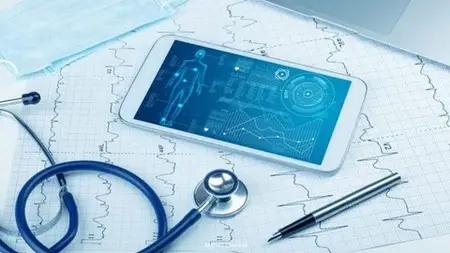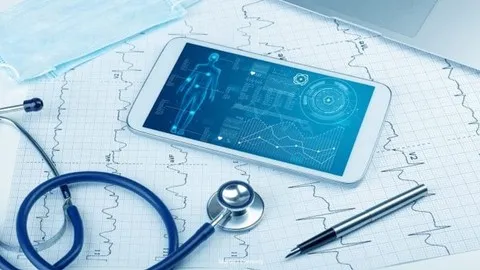Medical Device Design & Development Control. Iso 13485.
Published 8/2024
MP4 | Video: h264, 1920x1080 | Audio: AAC, 44.1 KHz
Language: English | Size: 3.50 GB | Duration: 3h 33m
Published 8/2024
MP4 | Video: h264, 1920x1080 | Audio: AAC, 44.1 KHz
Language: English | Size: 3.50 GB | Duration: 3h 33m
Understand Medical Device Design Control in simple terms to gain market approval. Compliance in the EU, US and Globally.
What you'll learn
Define the roles and responsibilities of those involved in design control of a medical device
Understand compliance of design control of a medical device.
Understand the design control process.
Compliance to ISO 13485, MDR, IVDR & CFR in the context of Design control.
Learn how to plan and control the design and development of a medical device.
Know what documentation is needed to record the design and control process.
Understand the design control process via an example of a medical device which is a stent.
Learn what the "Intended Purpose" is. How it relates to the design control process.
Understand Risk management and how this impacts the design control process.
Learn what the "Intended population", "Medical Indication" and claims. How these relate to the beginning of the design control process.
Understand the User needs and where these user needs come from.
How traceability is very important in the design control process. Input, output, verification and validation matrix will be an aid here.
Understand what a design output is. Which will become the specifications of the medical device.
Understand verification and the tests that are carried out to execute verification.
Understand validation and what needs to be done to ensure the medical device functions as it was intended.
Understand the review checks need to be executed during the design control process.
How we transfer the design control process over to sustaining manufacturing.
Learn how changes are controlled in a design control process.
What documentation is required: Design History File (DHR), Device Master Record (DMR), Device History Record (DHR) and Technical Documentation.
Really understand the "“Application of Design Controls to Waterfall Design Process” diagram, in very simple terms.
Requirements
None
You do not need any required skills to do this course. This course can be used for all levels, beginners, intermediate and higher levels. It explains design control in very simple terms.
Description
The course is broken into 10 sections. The objective of the course is to explain what is the standard requirement for medical device design and development control. What does the medical device designer needs to do in order to be be compliant to design and therefore get approval from a regulatory authority to be able to sell the device on the market place.It follows sections 7.3 of the ISO 13485 standard for design and development control of a medical device. It also references MDR 2017/745 and CFR 820.30. It will explain what needs to be done gain approval in the US, EU and globally.In the introduction I will explain the famous Waterfall design diagram and I validate this explanation in the recap lecture.I have attached resources such as quizzes, standards, regulations, guide lines, templates and case studies. In Section 1: General/Design & Development planning.In this section we will examine section 7.3.1 & 7.3.2 of the standard which explains that design and development needs to be planned and this planning process must be documented.To give context to the design and development process and to help to understand it better we will look at an example of a medical device which is a stent. We will use this example throughout the design process to illustrate better understanding.Section 2: User need/Intended Purpose.In Section two we will understand what is meant by “Intended Purpose” what do we want the medical device to do. What disease is it going to treat.Once we have defined the intended purpose, we need to understand what the user needs are and where do they come from. This can come from a lot of sources, and we will explain that. One main point here is stakeholders have different opinions on what they need the device to do.Section 3 Design & Development Inputs.We need to understand how the User needs which is what the user wants. We need to learn how to translate this into a how.With this we will look at how important traceability is. Each step in the process is linked and I will explain this via the Input Output Verification Validation matrix. IOVV. We will understand how risk analysis must be used to identify any risks which will lead to amendments in the design.Section 4: Design & Development Outputs.In this section design outputs are explained. In my simple definition the design outputs are the specification of the product.I will explain the design outputs must satisfy the design inputs.Section 5: Design & Development Review.We will understand that at each stage of the design and development process there should be a review of the design process. It needs to be documented and a person in authority within the organization must sign off on the review to allow it to go to the next stage.Section 6: Design & Development VerificationWe will understand what the ISO 13485 standards says about Design and Development Verification. Which is in section 7.3.6 of the standard.We will understand what verification is. You are ensuring that the specification of the device is correct.I will explain what verification tests are by way of illustration with examples.Section 7 Design and Development ValidationI will explain what the standard says about validation.I will explain what it is in simple terms. Is the device functioning as we intend it.Section 8 Design and Development Transfer:What is meant by design transfer. The product must eventually be made and sold in the marketplace. I will explain how this is going to be done.I will explain in a case study how important design transfer is.Section 9 Design and Development changesDesign Changes need to be controlled. I will explain how this needs to be done.I will discuss how important it is to control these changes via a case study.Section 10 Design and development Technical files.We need to understand that the whole design control process needs to be documented, recorded and stored.We will look at Design History File, Device Master Record, Device History Record which is associated with the US regulation and the Technical documentation which is associated with the European Union Regulation.
Overview
Section 1: Introduction to the course
Lecture 1 Introduction to Medical Device Design Control
Section 2: Introduction
Lecture 2 Medical Device Design Control: General & Design and Development Planning.
Lecture 3 An example of a medical device
Section 3: Section 2 Design & Development Inputs
Lecture 4 Intended Purpose
Lecture 5 User Needs Part 1
Lecture 6 User Needs Part 2
Lecture 7 User Needs Part 3: Customer.
Lecture 8 User Needs Part 4: Regulation
Lecture 9 User Needs Part 5: Technical
Lecture 10 User Needs Part 6: Performance
Lecture 11 User Needs Part 7: Sales
Lecture 12 User Needs Part 8: Manufacturing
Lecture 13 User Needs Part 9: Packaging & Transport.
Lecture 14 User Needs Part 10 Environmental.
Section 4: Design Inputs
Lecture 15 Design Inputs Part 1
Lecture 16 Design Input Part 2
Lecture 17 Design Input Part 3
Lecture 18 Design Input Part 4
Section 5: Design Outputs
Lecture 19 Design Outputs Part 1
Lecture 20 Design Outputs Part 2
Lecture 21 Design Outputs Part 3 Traceability.
Section 6: Design and Development Review
Lecture 22 Design and Development Review
Section 7: Verification
Lecture 23 Design & Development Verification Part 1
Lecture 24 Design & Development Verification: Part 2 Verification
Lecture 25 Design & Development Verification: Part 3 Verification tests.
Lecture 26 Design & Development Verification: Part 4 Calibration, Laboratories & Standards
Section 8: Validation
Lecture 27 Design & Development Validation Part 1: ISO 13485 Standard
Lecture 28 Design & Development Validation Part 2 Traceability
Lecture 29 Design & Development Validation Part 3: Clinical Trial
Section 9: Design & Development Transfer
Lecture 30 Design & Development Transfer Part 1
Lecture 31 Design & Development Transfer Part 2
Lecture 32 Design & Development Transfer Part 3
Section 10: Control of Design and development Changes
Lecture 33 Control of Design and Development Changes Part 1
Lecture 34 Control of Design and Development Changes Part 2
Section 11: Design and Development Files
Lecture 35 Design and Development Files Part 1
Lecture 36 Design and Development Files Part 2: Design History File
Lecture 37 Design and Development Files Part 3: Device Master Record
Lecture 38 Design and Development Files Part 4: Device History Record
Lecture 39 Design and Development Files Part 5: Technical File
Lecture 40 Recap Medical Device Control Process
All levels,Design Engineers,Production Managers,Supervisor,Technicians,Manufacturing Engineers,Process Engineers,Quality Engineers,Regulatory Affairs,Quality Assurance,Quality Control,Process & Development Engineers,Professional engaged in regulation especially in the medical device industry.,Auditors,Students who want to understand the medical device design control process.,Entrepreneurs or small start up companies who want to develop a new medical device to gain market approval.



